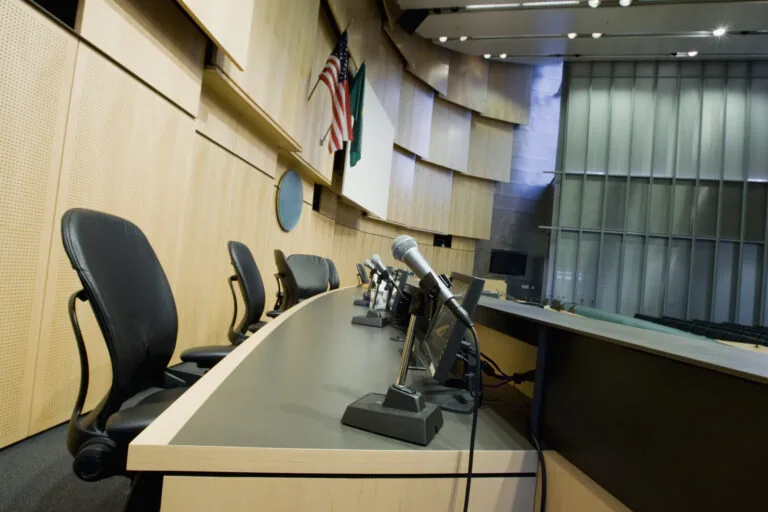When most people think of criminal investigations, they picture local police and state courts. But federal investigations are different. They often involve multiple agencies, cover complex financial or digital matters, and carry the weight of severe penalties. When you understand what sparks federal investigations and how to react, you’re better prepared to deal with problems before they grow.
Common Triggers for Federal Investigations
Federal agencies like the FBI, IRS, DEA, and SEC look for specific warning signs that point to possible violations of federal law. Sometimes, these red flags come from automated systems, and other times they start with human reports. A few common triggers include:
- Financial irregularities: Unusual wire transfers, large cash deposits, or accounting discrepancies can spark inquiries by the IRS or Department of Justice.
- Whistleblowers: Employees, business partners, or even competitors may report concerns about fraud, corruption, or workplace practices.
- Cyber activity: The FBI and other agencies monitor online activity for signs of hacking, data theft, or child exploitation.
- Suspicious business practices: Federal authorities may investigate companies accused of price fixing, securities fraud, healthcare fraud, or violating trade laws.
- Cross-border transactions: Large international dealings, especially in industries like shipping, technology, or finance, can draw attention under federal money laundering or sanctions laws.
In some cases, a federal investigation grows out of a state case. If local prosecutors uncover evidence of interstate crimes, like drug trafficking or wire fraud, they may hand the matter over to federal authorities.
How Federal Agencies Detect Potential Violations
Agencies don’t rely on luck to find cases. They use advanced systems, tips, and partnerships with other organizations. Here are some ways investigations begin:
- IRS audits can reveal underreported income or false deductions that lead to criminal tax charges.
- Bank reporting systems automatically flag transactions over certain thresholds or that look suspicious under the Bank Secrecy Act.
- Online monitoring tools track suspicious cyber activity, from phishing scams to cryptocurrency fraud.
- Regulatory filings, such as those with the SEC, may highlight potential securities violations.
- Cooperation with local authorities means federal prosecutors may take over when a case crosses state or national lines.
This layered system makes it possible for an investigation to start quietly and without your knowledge. Often, people don’t realize they are under federal scrutiny until agents show up at their door or they receive a target letter.
Warning Signs You May Be Under Federal Investigation
It’s not always clear when you’ve attracted federal attention, but some warning signs include:
- Receiving a subpoena for records or testimony.
- Having agents contact your employer, bank, or associates.
- Learning that your business or home has been searched with a warrant.
- Being approached directly by federal agents who want to “just ask a few questions.”
If any of these situations occur, it’s not the time to try to explain your side on your own. Anything you say can be used against you later.
Steps to Take if You Suspect You’re Under Investigation
Staying calm and acting wisely can make a significant difference. If you believe you’re under federal investigation:
- Do not speak to investigators without legal counsel. Even casual conversations can be misinterpreted.
- Preserve records. Destroying documents or deleting files can create separate charges for obstruction.
- Seek legal guidance quickly. A federal defense lawyer can help determine the scope of the investigation and advise you on next steps.
- Be careful about who you talk to. Friends, coworkers, or associates could later be witnesses. Keep discussions limited to your legal team.
- Stay proactive. The earlier you seek advice, the more options you may have to manage the situation before it escalates.
Protecting Your Future
Federal investigations are intimidating, but understanding how they begin and how to respond puts you in a stronger position. The process is often long and complex, but you don’t have to go through it alone. At The Fast Law Firm, we understand the stress and uncertainty that comes with even the possibility of federal charges. We will guide you through the process, explain your rights, and work with you to build a clear defense strategy.
If you believe you’re under federal investigation, reach out to The Fast Law Firm today. We’ll help you understand your options and protect your future.
Frequently Asked Questions
What crimes typically lead to federal investigations?
Federal cases often involve financial fraud, drug trafficking, cybercrime, tax violations, and crimes that cross state or national borders.
How do I know if I’m under federal investigation?
Common signs include receiving a subpoena, having agents contact your associates, or being directly approached by federal investigators.
Should I talk to federal agents if they contact me?
No. It’s best to speak with a defense lawyer first. Even casual statements can be used against you, so always get legal advice before responding.


